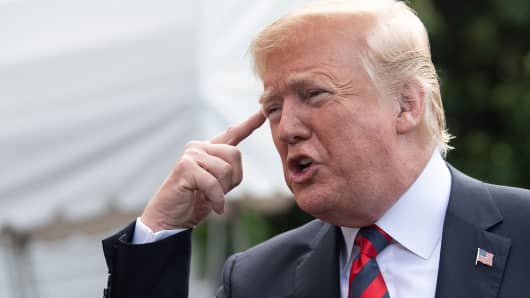The problem should have been kept at the highest level of state, where it is easily understood that China's $375 billion annual trade surplus with the U.S. is unacceptably large. A consensus would then follow for a prompt and steady action to balance the bilateral trade books.
Had things been done that way, it would have been politically impossible for Beijing to maintain a belligerent attitude of being "locked and loaded" for a trade war while its surpluses with the U.S. continue to soar at annual rates of 12 percent.
It might still be possible to push the trade issue with China back to Trump's agenda of key national security considerations. That's probably what China expects because Trump originally linked up bilateral trade imbalances with Korean nukes and other East Asian problems.
Trump seems to have successfully tested that approach at the G-7 summit last week by impressing the European leaders to take his trade warnings seriously.
Germans were the first to respond. With the external sector accounting for 84 percent of the economy, Berlin always keeps trade issues at the top of the state's agenda. So, to tone down the European trade rhetoric with Washington, and to make tangible progress on rebalancing trade accounts, Berlin is now setting up a special EU group to deal with American trade transactions.
Interestingly, Germany is considerably raising its purchases of American products. In the first four months of this year, U.S. exports to Germany soared 11.7 percent. That is double the rate of increase of U.S. exports to Japan, and four percentage points above the increase of American sales to China.
Germans appear to be deeply worried by rumors that Trump intends to put heavy import duties on automobiles. Partly as a result of that, Germans have now become the main advocates of a calm and thoughtful approach to trans-Atlantic relations, and seem ready to work with Washington on improving access of American businesses to EU markets.
Washington expects that Japan will take the same approach in dismantling its formidable barriers to entry for American car manufacturers and a broad range of U.S. consumer goods industries. Japanese Prime Minister Shinzo Abe had a refresher chat about that from Trump in a separate meeting on the way to the G-7 summit. As the president would say, let's see what happens.



